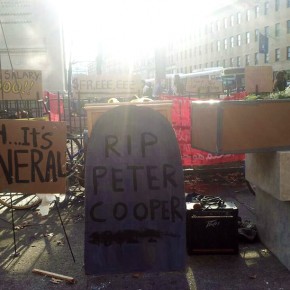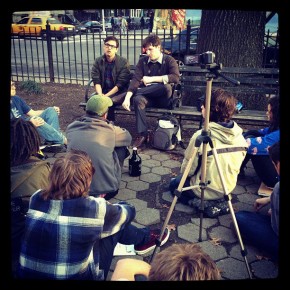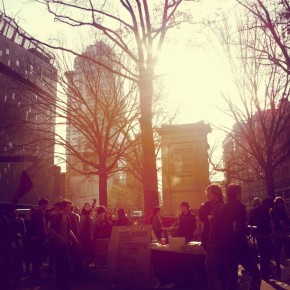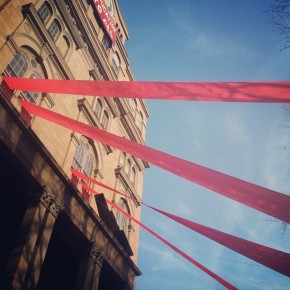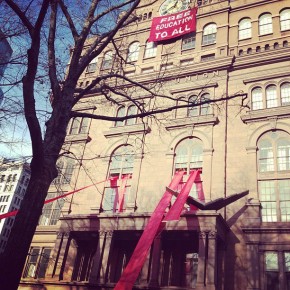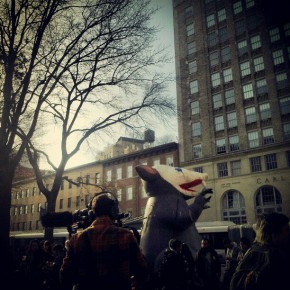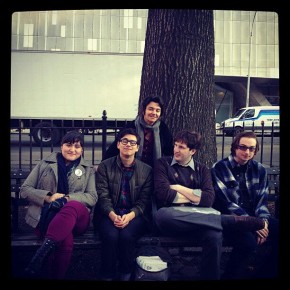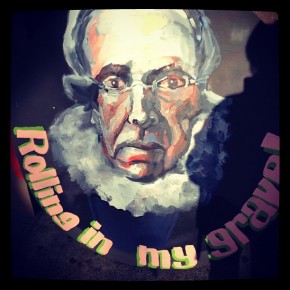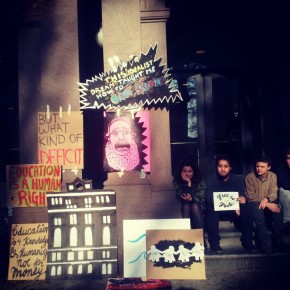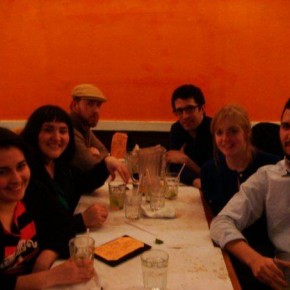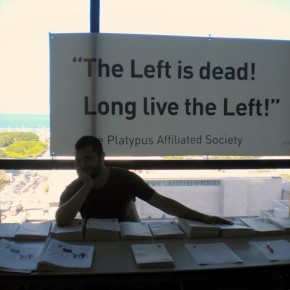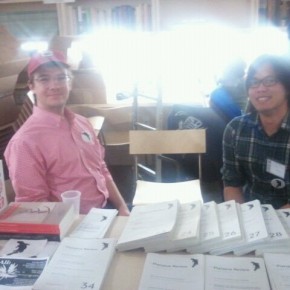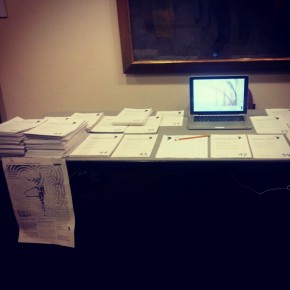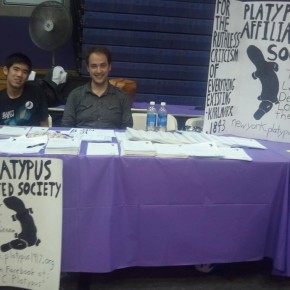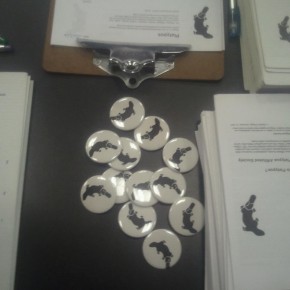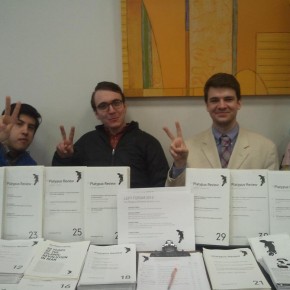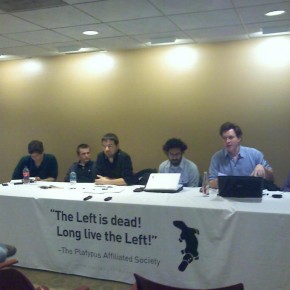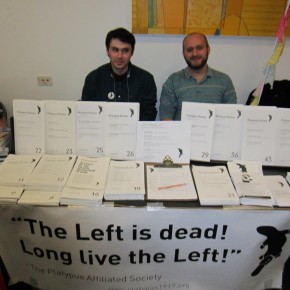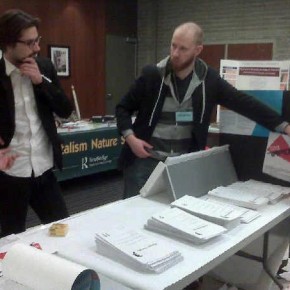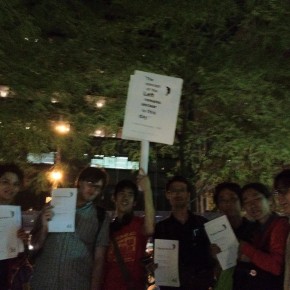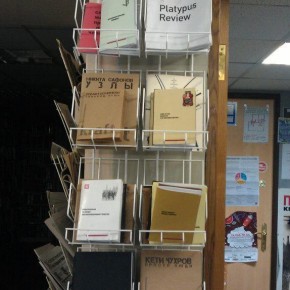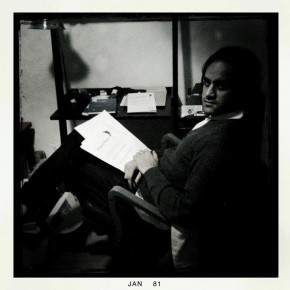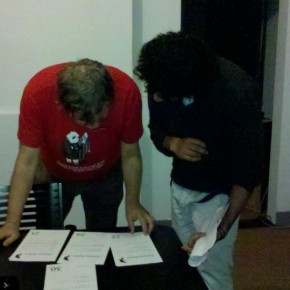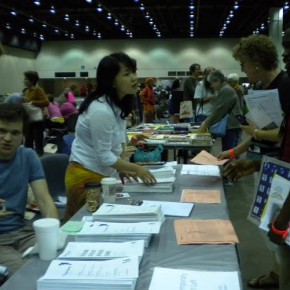Sammy Medina, Pam C. Nogales C., and Ross Wolfe gave teach-ins as part of the Free University during the Day of Action against Cooper Union's unprecedented tuition requirements. Pam did a teach-in on 19th-century American history and struggles for emancipation, while Sammy and Ross talked about the sociohistoric project of early modernist architecture.
Both teach-ins are available on our media site!
See the latest support from the faculty for a FREE Cooper Union at their UStream channel, or press play below.
Find out more on the Free Cooper Union FB page.
The Left after the Election
PANELISTS:
• BEN CAMPBELL (The North Star)
• ANNIE DAY (Revolution)
• ANTHONY GALLUZZO (CUNY)
• CHRIS MAISANO (DSA, Jacobin)
• BHASKAR SUNKARA (Jacobin)
Thursday
Dec 6, 2012
7:00-10:00pm
MODERATOR:
• TANA FORRESTER (Platypus Affiliated Society)
Thursday
Dec 6, 2012
7:00-10:00pm
NYU Kimmel Center
60 Washington Square South, rm 804
New York, NY 10011
Join the Facebook event page.
This past US election season saw an array of positions on the Left concerning the outcome that might follow from either major party's victory. Among them, there were some who openly supported the incumbent Barack Obama as the lesser of two evils, others who opposed him by casting a vote for another candidate, and still others who followed the abstentionist line by not voting at all. Many of those who voted for "four more years" did so under the assumption that the Democrats were a broadly center-left party with vaguely social-democratic tendencies, who might be pushed to reverse neoliberal policies and stave off measures of austerity. Some, while generally less optimistic, endorsed Obama on the premise that organizing a mass movement against capitalism would be easier with the Democrats in power. Others argued that Obama had done nothing to deserve reelection, offering no hope for either change or progress moving forward. The rest, who took no stance either for or against any party, chose instead to eschew electoral politics altogether.
Now that the quadrennial plebiscite for the "leader of the free world" has resulted in a Democratic victory, we are afforded a brief chance to critically evaluate the prospects for the Left's transition into the next four years. What is different today from four years ago, when Obama's election seemed departure from eight years under Bush? Did the last four years signal progress or regress for the Left? How will the terrain shift for the Left with another term under the president? In terms of foreign policy, will there be an end to the wars? Or will US militarism continue unabated? Domestically, will government social programs and infrastructure deteriorate yet further? Or will legislative reforms breathe life back into the moribund welfare state? Should we, in fact, take for granted the idea that keeping Romney out of office promises a better environment in which the Left to organize? What does the future hold for a Left caught in the stale air of the status quo?
•
Join the Facebook event page.
Download a larger flier for the event.
NYU Kimmel Center, Room 805
60 Washington Square South
Manhattan, New York 10011
Thursday // 11.15.2012 // 7:00-9:00 PM
The Platypus Review recently celebrated the publication of its fiftieth issue. Come join members of the Platypus Review at a launch party to celebrate this momentous occasion, also the start of our international Radical Interpretations of the Present Crisis panel series. We will be enjoying sumptious Vietnamese sandwiches in the NYU Kimmel Center at 7 PM, followed by drinks in Vol de Nuit at 148 West 4th St after 9 PM.
We will also be video conferencing with a range of speakers from London, Greece, Germany, Austria, Chicago, and discussing some of our very own Platypus Review staff from New York!
Platypus Review editorial statement of purpose and submission guidelines
Statement of purpose
Taking stock of the universe of positions and goals that constitutes leftist politics today, we are left with the disquieting suspicion that a deep commonality underlies the apparent variety: What exists today is built upon the desiccated remains of what was once possible.
In order to make sense of the present, we find it necessary to disentangle the vast accumulation of positions on the Left and to evaluate their saliency for the possible reconstitution of emancipatory politics in the present. Doing this implies a reconsideration of what is meant by the Left.
Our task begins from what we see as the general disenchantment with the present state of progressive politics. We feel that this disenchantment cannot be cast off by sheer will, by simply “carrying on the fight,” but must be addressed and itself made an object of critique. Thus we begin with what immediately confronts us.
The Platypus Review is motivated by its sense that the Left is disoriented. We seek to be a forum among a variety of tendencies and approaches on the Left—not out of a concern with inclusion for its own sake, but rather to provoke disagreement and to open shared goals as sites of contestation. In this way, the recriminations and accusations arising from political disputes of the past may be harnessed to the project of clarifying the object of leftist critique.
The Platypus Review hopes to create and sustain a space for interrogating and clarifying positions and orientations currently represented on the Left, a space in which questions may be raised and discussions pursued that would not otherwise take place. As long as submissions exhibit a genuine commitment to this project, all kinds of content will be considered for publication.
Submission guidelines
Articles in the Platypus Review will typically range in length from 750–4,500 words, but longer pieces will also be considered. Please send article submissions and inquiries about the project to: review_editor@platypus1917.org. All submissions should conform to the Chicago Manual of Style.
Readable PDFs of past issues
- The Platypus Review, № 1 — November 2007
- The Platypus Review, № 2 — February 2008
- The Platypus Review, № 3 — March 2008
- The Platypus Review, № 4 — April-May 2008
- The Platypus Review, № 5 — May-June 2008
- The Platypus Review, № 6 — July 2008
- The Platypus Review, № 7 — October 2008
- The Platypus Review, № 8 — November 2008
- The Platypus Review, № 9 — December 2008
- The Platypus Review, № 10 — February 2009
- The Platypus Review, № 11 — March 2009
- The Platypus Review, № 12 — May 2009
- The Platypus Review, № 13 — July 2009
- The Platypus Review, № 14 — August 2009
- The Platypus Review, № 15 — September 2009
- The Platypus Review, № 16 — October 2009
- The Platypus Review, № 17 — November 2009
- The Platypus Review, № 18 — December 2009
- The Platypus Review, № 19 — January 2010
- The Platypus Review, № 20 — February 2010
- The Platypus Review, № 20, Supplement on the Iranian Revolution — February 2010
- The Platypus Review, № 21 — March 2010
- The Platypus Review, № 22 — April 2010
- The Platypus Review, № 23 — May 2010
- The Platypus Review, № 24 — June 2010
- The Platypus Review, № 25 — July 2010
- The Platypus Review, № 26 — August 2010
- The Platypus Review, № 27 — September 2010
- The Platypus Review, № 28 — October 2010
- The Platypus Review, № 29 — November 2010
- The Platypus Review, № 30 — December 2010
- The Platypus Review, № 31 — January 2011
- The Platypus Review, № 32 — February 2011
- The Platypus Review, № 33 — March 2011
- The Platypus Review, № 34 — April 2011
- The Platypus Review, № 35 — May 2011
- The Platypus Review, № 36 — June 2011
- The Platypus Review, № 37 — July 2011
- The Platypus Review, № 38 — August 2011
- The Platypus Review, № 38, Supplement on the Legacy of Trotskyism — August 2011
- The Platypus Review, № 39 — September 2011
- The Platypus Review, № 40 — October 2011
- The Platypus Review, № 41 — November 2011
- The Platypus Review, № 42 — December 2011-January 2012
- The Platypus Review, № 43 — February 2012
- The Platypus Review, № 44 — March 2012
- The Platypus Review, № 45 — April 2012
- The Platypus Review, № 46 — May 2012
- The Platypus Review, № 47 — June 2012
- The Platypus Review, № 48 — July-August 2012
- The Platypus Review, № 49 — September 2012
- The Platypus Review, № 50 — October 2012
- The Platypus Review, № 51, Special Issue on the Election — November 2012
- The original editorial board
- Marco at the 2nd International Convention
- Pac Pobric and Sacha Amry
- Looking back on Occupy 2012
- DIY Platypus w Jeremy Cohan and Brian Hioe
- Ben Blumberg and Pac Pobric
- Jerzy, Moritz, Haseeb, and Thodoris
- Jacob Cayia and Chris Mansour with a nice display stand of past issues of the Platypus Review at the Left Forum 2012
- Soren Whited of Platypus mans our stand at Left Forum 2009
- Lisa Montanarelli, Ross Wolfe, and Brian Hioe with Japanese comrades from Zenko Peace, holding up copies of the Platypus Review
- The Platypus Review in a Moscow bookshop (2012), courtesy of Haseeb Ahmed
- Our fearless leader and editor-in-chief, Sunit Singh, holding a copy of the Platypus Review (2011)
- Slovenian theorist Slavoj Žižek with Haseeb Ahmed in Maastricht (2011), looking over some copies of the Platypus Review
- Nate Smith with some copies of the Platypus Review at the US Social Forum in Detroit, 2010
A roundtable discussion organized by the Platypus Affiliated Society on October 18, 2012 at New York University.
A year, a month, and a day ago marked the official beginning of an ostensibly new, post-Obama phase of radical politics in America.
The longer prehistory of Occupy has been variously traced back to anti-austerity protests in Europe, the Arab Spring, and the London riots — with some of its roots stretching all the way to alter-globalization in the late 1990s. Occupy can be understood both in this broader context of radicalization going on throughout the world at the time and as a phenomenon in its own right.
Today Occupy stands at a crossroads. Our moment provides a brief vantage point from which one might reflect upon what the Occupy movement has been to date (its victories, its failures, its enduring impact), whether it still exists at present, and — if so so — what are the tasks that remain for it to fulfill moving forward?
A little over a month on from #S17, and only three weeks away from the US elections, we in the Platypus Affiliated Society thus ask our panelists to consider:
1. What kinds of social transformation has Occupy brought about? What kinds of social conflicts remain unresolved? Where has it triumphed, and where has it fallen short?
2. How, if at all, has Occupy changed your political outlook? Has it modified the kinds of goals you hope to achieve through your activism? And has your approach toward organizing a mass movement in order to achieve these goals shifted at all?
3. What sort of new political possibilities has Occupy opened up that beforehand seemed impossible? Conversely, is there anything once felt had been politically possible at Occupy's outset but now no longer feel is possible?
PLEASE NOTE: Due to technical difficulties, the last five minutes of this panel were not recorded on either audio or video. We apologize for the inconvenience.
HOSTED BY:
The Platypus Affiliated Society
MODERATOR:
Lisa Montanarelli (Writers for the 99%, Platypus Affiliated Society) is an author and activist who participated in the occupation of Zuccotti Park and collaborated with more than 50 other writers and researchers on the book Occupying Wall Street. She has since become a member of Platypus.
FEATURED PANELISTS:
Fritz Tucker (Occupier, journalist) is a native Brooklynite, writer, activist, theorist, and researcher of people's movements the world over, from the US to Nepal. Last year he authored the article "A Chill Descends on Occupy Wall Street: The Leaders of an Allegedly Leaderless Movement."
Victoria Sobel (Media & Finance working groups) is an activist and major organizer within the Occupy movement in New York, especially during its two months in Zuccotti Park.
Shyam Khanna (Strike Debt) is an organizer of Strike Debt, a prominent outgrowth of the Occupy movement.
David Haack (Occupy Your Workplace) is an underemployed artist an anticorporate activist who lives in New York City. He is also a leading organizer within the Occupy Your Workplace working group, and author of "How the Occupy movement won me over" (published in Britain's The Guardian) and "The New Left Zombie is Dead! Long Live Occupy!" (published in Platypus Review 45).
Victoria Campbell (Occupier, Pacifica's Occupy Wall Street Radio show on WBAI) is an artist and activist involved with Occupy Wall Street, also a host on Pacifica's Occupy Wall Street Radio show.
Facebook event page for "A Year, a Month, and a Day: Looking back on #Occupy."
Google Calendar page for "A Year, a Month, and a Day: Looking back on #Occupy."
Download the flier for "A Year, a Month, and a Day: Looking back on #Occupy."
Thursday | October 18, 2012 | 7-9 PM
// Kimmel Center, Room 914 NYU
// 60 Washington Square S.
// New York, NY
A year, a month, and a day ago marked the official beginning of an ostensibly new, post-Obama phase of radical politics in America.
The longer prehistory of Occupy has been variously traced back to anti-austerity protests in Europe, the Arab Spring, and the London riots — with some of its roots stretching all the way to alter-globalization in the late 1990s. Occupy can be understood both in this broader context of radicalization going on throughout the world at the time and as a phenomenon in its own right.
Today Occupy stands at a crossroads. Our moment provides a brief vantage point from which one might reflect upon what the Occupy movement has been to date (its victories, its failures, its enduring impact), whether it still exists at present, and — if so so — what are the tasks that remain for it to fulfill moving forward?
A little over a month on from #S17, and only three weeks before the US elections, we in the Platypus Affiliated Society thus ask our panelists to consider:
1. What kinds of social transformation has Occupy brought about? What kinds of social conflicts remain unresolved? Where has it triumphed, and where has it fallen short?
2. How, if at all, has Occupy changed your political outlook? Has it modified the kinds of goals you hope to achieve through your activism? And has your approach toward organizing a mass movement in order to achieve these goals shifted at all?
3. What sort of new political possibilities has Occupy opened up that beforehand seemed impossible? Conversely, is there anything once felt had been politically possible at Occupy's outset but now no longer feel is possible?
This event is free and open to the public.
HOSTED BY:
The Platypus Affiliated Society, established in December 2006, organizes reading groups, public fora, research and journalism focused on problems and tasks inherited from the “Old” (1920s-30s), “New” (1960s-70s) and post-political (1980s-90s) Left for the possibilities of emancipatory politics today.
For a media index of past Platypus events on Occupy, feel free to check out our online archive of video, audio, and writings on the movement.
MODERATOR:
Lisa Montanarelli (Writers for the 99%, Platypus Affiliated Society) is an author and activist who participated in the occupation of Zuccotti Park and collaborated with more than 50 other writers and researchers on the book Occupying Wall Street. She has since become a member of Platypus.
FEATURED PANELISTS:
Fritz Tucker (Occupier, journalist) is a native Brooklynite, writer, activist, theorist, and researcher of people's movements the world over, from the US to Nepal. Last year he authored the article "A Chill Descends on Occupy Wall Street: The Leaders of an Allegedly Leaderless Movement."
Victoria Sobel (Media & Finance working groups) is an activist and major organizer within the Occupy movement in New York, especially during its two months in Zuccotti Park.
Nicholas Mirzoeff (Strike Debt, NYU) is professor of Media, Culture, and Communication at New York University. and lead organizer of Strike Debt, a prominent outgrowth of the Occupy movement.
David Haack (Occupy Your Workplace) is an underemployed artist an anticorporate activist who lives in New York City. He is also a leading organizer within the Occupy Your Workplace working group, and author of "How the Occupy movement won me over" (published in Britain's The Guardian) and "The New Left Zombie is Dead! Long Live Occupy!" (published in Platypus Review 45).
Victoria Campbell (Occupier, Pacifica's Occupy Wall Street Radio show on WBAI) is an artist and activist involved with Occupy Wall Street, also a host on Pacifica's Occupy Wall Street Radio show.

